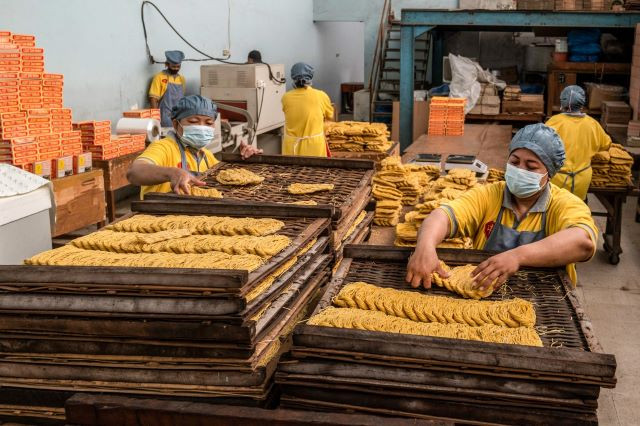Popular Reads
Top Results
Can't find what you're looking for?
View all search resultsPopular Reads
Top Results
Can't find what you're looking for?
View all search resultsRI could have a super high speed train as early as 2012
Indonesia could have an environmentally friendly, high speed train called a hydrogen hi-speed rail super highway (H2RSH) as early as 2012 if a three-month study confirms its technical and financial feasibility, claims a firm
Change text size
Gift Premium Articles
to Anyone

I
ndonesia could have an environmentally friendly, high speed train called a hydrogen hi-speed rail super highway (H2RSH) as early as 2012 if a three-month study confirms its technical and financial feasibility, claims a firm.
As many as 15 firms from the US and Indonesia could help develop a US$3 billion project that would run for 357 kilometers and connect the capital to several cities in West Java, subject to a 90-day feasibility study, according to the Malaysian firm Caedz, LLC, a leading member of the potential consortium.
The 15 firms which could become involved include Aon Risk Service Inc, Aqua-PhyD Inc, Aruna Solutions, Asian Energy Limited, Tricap Group, Copernicus International, eCompass Group, Fidelity National Financial, Global Green Management, McGladry & Pullen, Modular Integrated Technologies, Obermeyer Planen+Beraten, Pembinaan Aktif Gemilang, The Interstate Traveller Company, and Tum Geotechnical Research.
An MoU was signed on Monday, facilitated by the Eco Synesis Group (CAEDZ), while another one, involving the eCompass Group, was scheduled for the next day, according to the Foreign Ministry in a statement published on its website.
The Monday signing was a follow-up to an earlier signing by consortium members in Kuala Lumpur, Malaysia, on Dec. 1 last year.
CAEDZ director for investment, finance and business development Marjorie Hoeh said as quoted by the website that the project was one of a number of projects proposed to develop the Jakarta-Bandung-Cirebon corridor across West Java.
The Transportation Ministry's director general for train Tunjung Inderawan told The Jakarta Post on Thursday that the project was initiated by the West Java administration, as it was in line with the government's policy to increase private investment, particularly in infrastructure.
"*We* will facilitate investors in their feasibility studies and detailed engineering design by providing data and information required and *help them* process their necessary licenses," he told The Jakarta Post in a short text message.
According to the website, Marjorie said a short feasibility study for the project would begin next Monday. The proposal does not involve conventional track or trains.
If and when proven to be technically and financially feasible, construction could take as little as two years. The H2RSH could start operations as early as in 2012, according to the Foreign Ministry website.
It is not clear if a further full feasibility study might be required to ensure investor support. The Jakarta monorail experience provided the lesson that substantive studies and solid preparations are needed to back new transport ideas.
In the past new infrastructural projects have also been delayed by problems such as land acquisition.
Your Opinion Matters
Share your experiences, suggestions, and any issues you've encountered on The Jakarta Post. We're here to listen.
Thank you
Thank you for sharing your thoughts. We appreciate your feedback.









